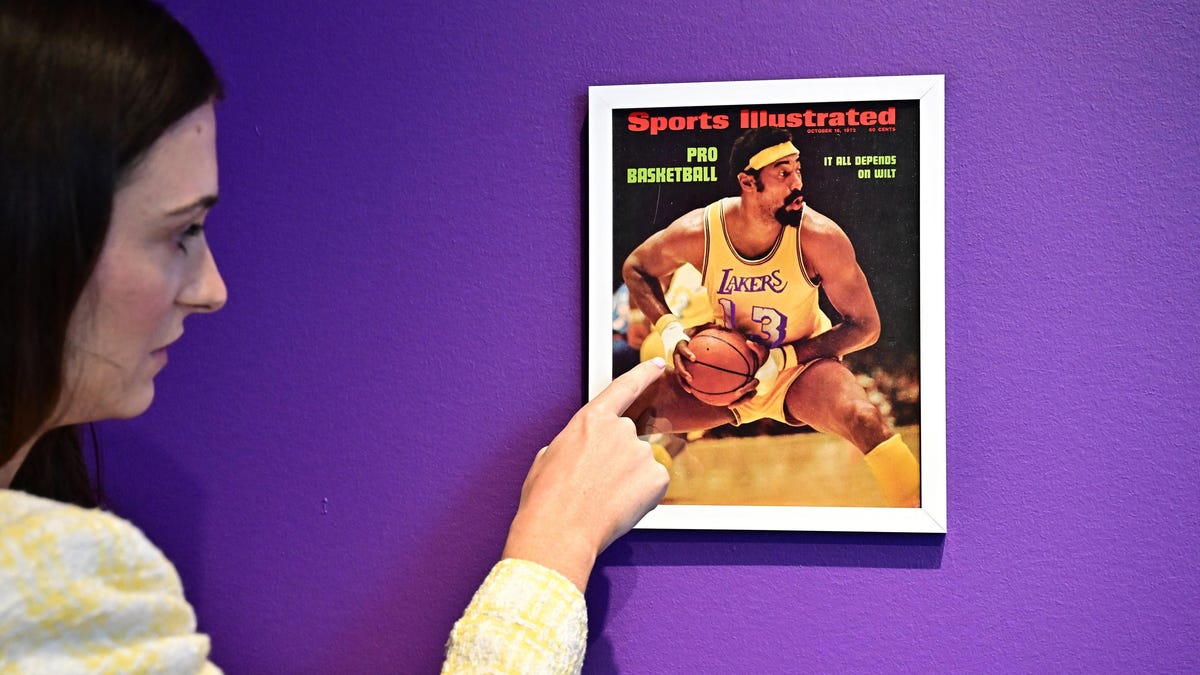
Update 5:46 PM: Sports Illustrated sent us the following statement.
Today, an article was published alleging that Sports Illustrated published AI-generated articles. According to our initial investigation, this is not accurate. The articles in question were product reviews and were licensed content from an external, third-party company, AdVon Commerce. A number of AdVon’s e-commerce articles ran on certain Arena websites. We continually monitor our partners and were in the midst of a review when these allegations were raised. AdVon has assured us that all of the articles in question were written and edited by humans. According to AdVon, their writers, editors, and researchers create and curate content and follow a policy that involves using both counter-plagiarism and counter-AI software on all content. However, we have learned that AdVon had writers use a pen or pseudo name in certain articles to protect author privacy – actions we don’t condone – and we are removing the content while our internal investigation continues and have since ended the partnership.
The original story continues below.
The parent company that owns the storied and once-lauded magazine Sports Illustrated has been shoveling more AI slop into its readers’ eyeballs. Instead of telling its audience the garbled, nonsensical AI-created content was crafted by a chatbot, the company has tried to smuggle the fake content to readers with bogus writers sporting AI-generated headshots.
Advertisement
The Arena Group, the company that owns legacy media organizations like Sports Illustrated and financial news site TheStreet, has been crafting a carousel of fake AI bylines to run at the top of AI-generated content posted to both sites, as first reported by Futurism. Authors like “Drew Ortiz” and “Sora Tanaka” both had bios describing their home lives and interests, from camping and fishing to fitness and nutrition. However, both had profile photos that were for sale from Generated Photos, a service that sells fake AI-generated headshots.
These are just two examples of what is reportedly a rotating cast of fake profiles designed to mask and offer a human face on top of AI-generated content. Futurism quoted one anonymous source who claimed they were involved in creating the AI personas saying “there’s a lot” of them being pushed to the company’s sites. These professional-seeming profiles then get swapped out for each other on a routine basis.
Advertisement
The articles stemming from these AI-generated profiles include shopping listacles meant to generate revenue through affiliate links. One of these articles dates back to 2021 and includes such wonderful lines as “Volleyball can be a little tricky to get into, especially without an actual ball to practice with. You’ll have to drill in the fundamentals in your head before you can really play the game the way it was meant to be played, and for that, you’ll need a dedicated space to practice and a full-sized volleyball.”
Advertisement
These articles and profiles are no longer available on the Sports Illustrated website, though many are still easily obtainable through the Internet Archive. Futurism claimed The Arena Group removed both the stories and AI authors once the outlet contacted the media conglomerate. Gizmodo reached out to The Arena Group for comment, but we didn’t immediately hear back.
Advertisement
These kinds of AI-generated bylines seem to be an attempt to fool readers into thinking they are getting the advice of real consumer product experts, but they may also be an effort to try and fool Google’s search and advertising algorithms. There is currently a slew of junk news websites pumping out fake AI articles or outright stealing from other news sites to eke a few dollars at a time from Google AdSense or other algorithmic advertising services.
The company had previously mentioned its concern with how Google would judge their AI efforts. The Arena Group CEO Ross Levinsohn told The Wall Street Journal that “Google will penalize you” for spamming the internet full of ungodly numbers of AI articles. “More isn’t better; better is better,” he added.
Advertisement
Google, for its part, has claimed it tries to focus on the “quality of the content, rather than how it was created” and has policies against advertising on fake or plagiarized content. By putting a human face on the article, these product reviews can attempt to fool the kinds of systems meant to halt advertising on AI-created content.
So far, most media owners’ attempts to create AI content have blown up spectacularly, and Gizmodo’s parent company’s efforts have been no exception. Red Ventures, which owns CNET, and Gannett, the chain owning hundreds of local newspapers, have had to issue mass corrections to a hoard of AI-created journalistic botch jobs.
Advertisement
Companies have routinely claimed that AI will not lead to layoffs, but The Arena Group booted staff back when it took over in 2019 and again earlier this year around the time it first announced its pivot to AI content. That first round of layoffs was an attempt to “refocus” itself on the mobile platform. This pivot is akin to news from Monday that famed legacy science magazine Popular Science is abandoning its digital magazine to “prioritize investment in new formats” that include “commerce, video, and other initiatives.”
Then again, Google has eliminated the need for articles to be “written by people” to rank high in Search. Google itself is also allowing advertisers to create ads with generative AI, so there’s a likely future where fake AI writers will create fake AI content for the sake of making money from fake AI ads. The only thing missing from this cyclical system of self-cannibalization is the fake AI readers.
Services Marketplace – Listings, Bookings & Reviews